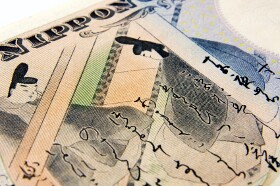
The Japanese yen is holding steady against its most traded currency rivals to start the week. After disappointing economic data and expanded monetary stimulus announcements last week, the yen is being largely driven by the governmentâs decision to extend the state of emergency for the rest of May. While Tokyo is bracing for a severe downturn, the tsunami of coronavirus cases has yet to occur.
On Monday, Prime Minister Shinzo Abe extended the nationwide state of emergency until May 31, which comes two days before the order was set to expire. The prime minister defended the move, noting that it was necessary to reduce the number of COVID-19 infections and limit some of the strain on hospitals.
He conceded that the limitations and restrictions on economic and social activities cannot be prolonged, though he urged the population to adopt ânew lifestylesâ to avoid intensifying the outbreak. Abe believes the public should adhere to avoiding the three Cs: confined spaces, crowded places, and close contact.
Prime Minister Abe said during a televised press conference:
The one-month period is designed for us to prepare for the next step and put an end to the state of emergency.
Japan is starting to see some positive results. But with a considerable number of people infected at this point, the decline in infections is by no means at a sufficient level.
Despite neighboring the epicenter of the coronavirus, Japanâs situation has failed to metastasize into a hotspot that the experts had originally expected. The country has more than 15,000 cases and just under 600 deaths.
Last week, the Bank of Japan (BoJ) announced that it would be expanding its monetary stimulus by acquiring an unlimited amount of bonds to suppress borrowing costs. Governor Haruhiko Kuroda warned that the economic pain from the coronavirus could be worse than the collapse of Lehman Brothers in 2008.
The current crisis could have a bigger negative impact than the Lehman shock. The government and the central bank obviously need to work together, particularly at a time like this.
On the data front, March retail sales plummeted 4.6%, preliminary industrial output contracted 3.7%, year-on-year construction orders plunged 14.3%, housing starts fell at an annualized rate of 7.6%, and consumer confidence cratered to 21.6.
The USD/JPY currency pair tumbled 0.03% to 106.87, from an opening of 106.93, at 13:00 GMT on Monday. The EUR/JPY slumped 0.41% to 116.90, from an opening of 117.38.
If you have any questions, comments, or opinions regarding the Japanese Yen, feel free to post them using the commentary form below.